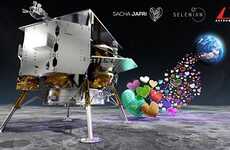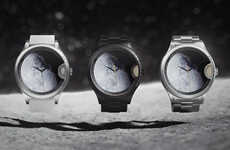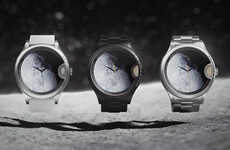
Chinese appeals court banned a company from selling land on the moon. According to the state media, “celestial bodies†could not be anyone's property.
The Beijing Administration of Industry and Commerce had revoked the business license and fined 50,000 yaun from Lunar Embassy, a Beijing-based company, since it tried to make money by selling individuals ownership of an acre of lunar land for 298 yuan ($37) each. It was reported that 34 clients had bought 49 acres of land, earning the company more than 14,000 yuan ($1,800) within three days of its opening.
The Beijing Administration of Industry and Commerce had revoked the business license and fined 50,000 yaun from Lunar Embassy, a Beijing-based company, since it tried to make money by selling individuals ownership of an acre of lunar land for 298 yuan ($37) each. It was reported that 34 clients had bought 49 acres of land, earning the company more than 14,000 yuan ($1,800) within three days of its opening.
Trend Themes
1. Celestial Property Rights - The lack of legal recognition for owning celestial bodies presents an opportunity for disruptive innovation in developing a framework for regulating and commercializing space resources.
2. Space Tourism - As interest in space travel grows, there is potential for disruptive innovation in creating new business models and experiences for consumers looking to explore the moon and beyond.
3. Space Security - The need to protect celestial bodies from unauthorized exploitation creates an opportunity for disruptive innovation in developing technologies and regulations to ensure the preservation of space resources.
Industry Implications
1. Legal Services - The uncertain legal landscape surrounding celestial property rights presents an opportunity for disruptive innovation in legal services to establish and enforce regulations for space ownership.
2. Hospitality and Tourism - The emerging space tourism industry offers disruptive innovation opportunities for the hospitality and tourism sector to create unique experiences and services for travelers venturing into space.
3. Space Technology - The need for secure and sustainable space exploration and utilization drives disruptive innovation opportunities in the space technology industry, from resource extraction to satellite maintenance and protection.
0.7
Score
Popularity
Activity
Freshness























